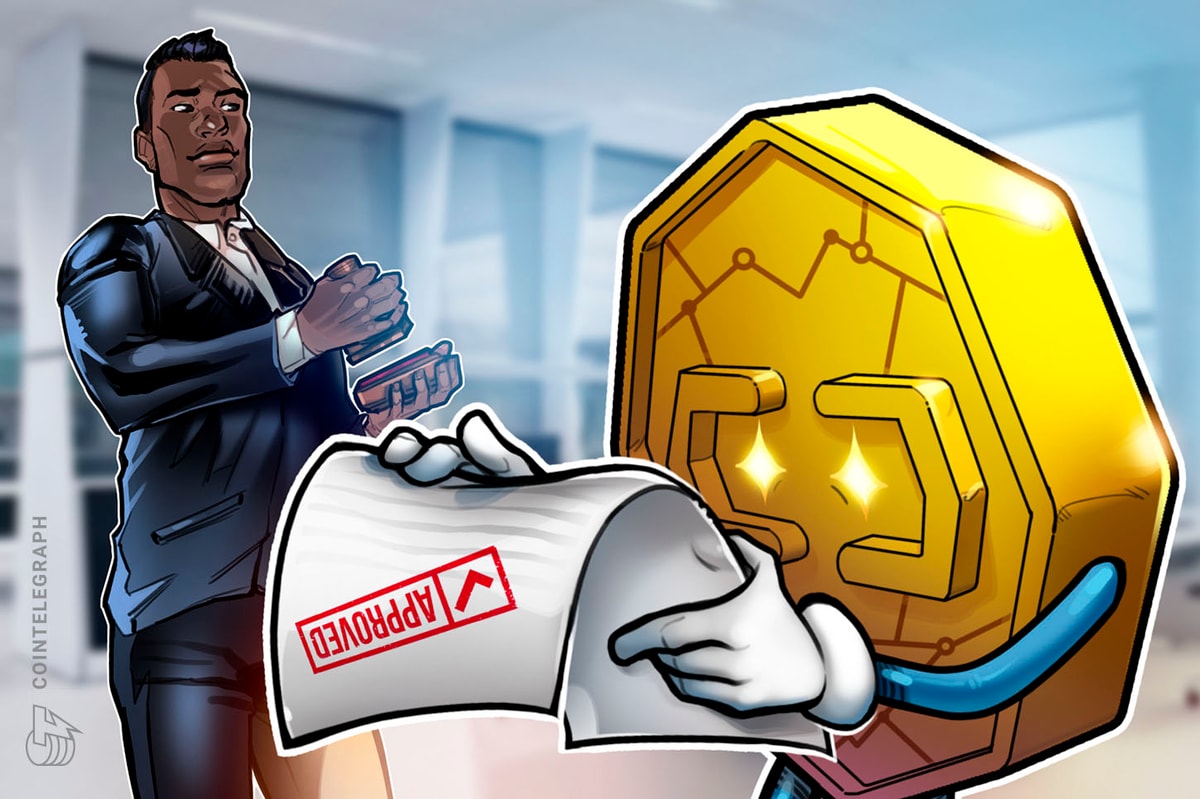Citigroup and the ‘financial supermarket’ experiment | FT Film
14 min read
You can enable subtitles (captions) in the video player
MIKE MAYO: The merger between Citi and Travellers is one of the worst big bank mergers in history.
SUJEET INDAP: Citigroup was the collection of dozens of businesses, and so there had been issues with compliance and risk management.
STEPHEN GANDEL: The thing you have to realise is that the merger that Sandy Weill and John Reed come up with, it was illegal.
GILLIAN TETT: If you look at simply its share price performance, Citibank has trailed its other big American rivals.
MIKE MAYO: Since the merger 25 years ago, the stock is down over 80%.
DIANE GLOSSMAN: Welcome to the banking business, where you have a crisis around every corner.
[MUSIC PLAYING]
GILLIAN TETT: Time and again, you seen problems or scandals or trading losses erupt in different corners of the bank that have taken the senior managements by surprise.
JOSHUA FRANKLYN: Citi is by no means the only bank that has had to pay fines for risk issues, money laundering issues, compliance issues. But the bigger a bank gets, the more complex it gets, the more global it gets, the more challenges like this that they have to come up against.
GILLIAN TETT: We’ve seen Citibank have problems with money laundering in different departments, again, which the senior management didn’t know about.
DIANE GLOSSMAN: In the case of Banamex, if there are problems that come up, you have to ask yourself if they were paying good enough attention, if their systems were focused on the right thing.
GILLIAN TETT: More recently, there have been big problems in this IT sector, where essentially systems have broken down, and the bank has made payments by accident to clients. Time and again, we see the same pattern.
CLAIRE BOSTON: Yes, we are back to thinking about Citi and this nearly $1 billion mistake in payment that they made.
JOSHUA FRANKLYN: So what really starts the latest chapter of Citi’s struggles, it’s something that’s pretty basic. Citi just needs to make a payment of around $9 million to a group of creditors to the cosmetics company Revlon. But instead of transferring $9 million, they accidentally transfer $900 million.
SUJEET INDAP: 99% of people don’t pay attention to this. We just see headlines about money moving and transactions. In fact, the plumbing of the financial system is extremely complicated. Banks are doing millions of transactions a day. 99.999% of the time, it works out OK. What’s unique about this case is, one, obviously, it involves a lot of money, $900 million. Two, it’s this quirky situation where some of the firms that got repaid accidentally had a grievance with Citigroup and had a reason not to give the money back.
JOSHUA FRANKLYN: Most of those creditors, a group of hedge funds, pay Citi that money back. They recognise, oh, this was made in error. But a group of those hedge funds think actually, you’ve paid us this money. There’s no obligation for us to pay it back. We’re going to keep it. And so Citi is then in this long protracted fight over around $500 million, trying to get that money back that they accidentally transferred. In addition to that, regulators, investors are asking the question, how can this happen?
MIKE MAYO: The Revlon issue at Citi was due to human error, according to the company, but it really reflects underlying deeper problems. It was a microcosm of a larger issue of antiquated technology. I mean, for all the progress Citi has made in the front office with digitization for consumers, the back office needs enormous modernization.
NEWSCASTER 1: Remember the flash crash of European stocks last month? Turns out it might have been caused by a London Citibank staffer.
JOSHUA FRANKLYN: In 2022, almost two years after the Revlon case, there’s another issue with Citi. They cause what’s called a flash crash, a sudden drop in a number of European stocks, because of a fat finger trading error. One of their traders sent through a much larger order of stocks than planned. This really moved markets in a significant way. And again, these sort of things, they do happen occasionally, but they shouldn’t happen. And it just showed how the problems that Citi has, they can’t be fixed overnight.
GILLIAN TETT: And if you look at simply its share price performance, what is very clear is that in the last few years, Citibank has trailed its other big American rivals. And even now, in 2023, it’s trading below its projected book value, which is quite remarkable.
MIKE MAYO: The problem at Citigroup is simply the complexity. And so you know, it really stretches back to the mergers that they pursued. I’ll tell you, Citi has it all. I mean, when this merger was announced in 1998, it was the paradigm of capitalism. This is where the future is headed for the next 50 years.
DIANE GLOSSMAN: In hindsight, the Citi-Travellers deal created a lot of angst.
GILLIAN TETT: When Citibank did its famous merger in 1998, it really became a symbol of the changing American regulatory landscape and the changing ambitions of American banks.
JOSHUA FRANKLYN: The 90s really was a time of growth on Wall Street and just in the economy more broadly.
DIANE GLOSSMAN: It was a time of burgeoning opportunity. The markets were good. National mood was pretty positive.
JOSHUA FRANKLYN: Interest rates were low. People felt like they were on the cusp of this great globalisation wave. You had booming emerging markets in Latin America, in Asia, and really felt like the financial world was going to become more interconnected.
BROOKE MASTER: The whole period in the 80s and 90s came at a time when lots of companies were combining in lots of different areas. Financial services was actually kind of late to the party because there were rules against particular types of mergers.
DIANE GLOSSMAN: That was the time when people were talking about creating financial supermarkets– buying everything from the same company, whatever your financial need. And Citi was the first one to give that a shot.
BROOKE MASTER: The idea was that if you created big champions, they would do better, and they would have more profits while also being able to cut costs. Financial services to a certain extent trailed behind, even though the bankers themselves were working on these big merger deals.
DIANE GLOSSMAN: You had on the one hand Citi that had a huge business around the globe, known to be an innovator in technology and credit card.
STEPHEN GANDEL: It has its roots back to the beginning of the American enterprise. Very traditional US bank, the largest, the highest rated.
JOSHUA FRANKLYN: What is today Citigroup started all the way back in 1812 as First National Citi Bank in New York. And decades later, it became one of the real pioneers in US banking, in going overseas, in Latin America, in Asia, globally around the world, in the late 90s. In 1974, it’s rebranded as Citicorp. And then in 1993, it hits another milestone. It becomes the biggest bank holding company in the world. This isn’t just a New York bank anymore.
BROOKE MASTER: Citicorp at that point was a giant bank that did corporate and retail banking. Travellers, meanwhile, was an insurance company that also had an investment banking arm.
SMITH BARNEY: Smith Barney. They make money the old fashioned way.
BROOKE MASTER: Salomon Smith Barney, which did wealth management as well– so it brought the whole giant panoply of pretty much everything you could do in financial services under one roof.
DIANE GLOSSMAN: John Reed was the CEO of Citi. He had come up through the consumer side of the bank. On the Travellers side, we had Sandy Weill, who had built up broker dealers.
STEPHEN GANDEL: He’s from Bensonhurst, Brooklyn. He’s different. He looks different than what you would expect for a CEO and he saw the world differently. The merger they’re proposing is illegal. Most bankers wouldn’t go there. But it took someone who had a different vision. And they decided, well, we’ll do the merger first, and the world’s going to change for us. And they were right.
[MUSIC PLAYING]
JOSHUA FRANKLYN: In 2001, the share price almost hits $600 a share. Cheered on by investors, the merger between Citi and Travellers– it’s a really seminal moment in US finance because it’s the merger that triggers the repeal of Glass-Steagall Act, which a post US Depression piece of legislation, had been in place since the 1930s, basically to try to de-risk US banks, to separate commercial banking activities from riskier investment banking activities.
BROOKE MASTER: When they announced the merger, it was not yet legal for all of these things to be under one roof. But the Clinton administration had made clear that they wanted to relax the regulations. And it was pretty clear that Congress was going to go along.
So there was a general agreement that they were going to change this. And by having an actual deal, it meant that Congress had a deadline to act. I mean, in a way, it almost forced Congress’s hand. They had been talking about it. And now they had a deal that if they didn’t pass new rules, then this deal would collapse, and it was this giant successful deal, and was supposed to be fantastic for the stock market.
GILLIAN TETT: Citibank became the first big American juggernaut to try and combine investment banking and retail banking. And it did so in a very dramatic fashion. And it made it very clear that it wanted to be a one-stop shopping enterprise. It went on a spending spree, gobbling up all kinds of operations, and essentially planting flags in many, many countries. The one I know best is Japan, where essentially Citibank became one of the first groups that really had a significant presence in the Japanese market.
DIANE GLOSSMAN: One of the things that changed when Citi merged with Travellers was that Travellers was willing to take partial ownership of entities. And Citi had never done that before. So for example, they owned part of Bank Handlowy in Poland. They had ownership interest in a bank in Turkey. Whereas previously, when Citi made a bank acquisition, they would acquire 100%. And I think that probably contributed to some of the issues that have happened down the road.
STEPHEN GANDEL: The enormity of it, and the difficulty of running all these various businesses different– traditional segments, the old school bankers with the risk takers, and the client-focused people, the broker that was going to talk to the grandmother who had savings and try to invest it– I mean, these different cultures never really mixed. And so pretty quickly, Sandy Weill, the ultimate operator who had won out in the merger and got rid of his rival, John Reed, to take over this all aisles of finance– he can’t make it work. And by 2003 and 2004, Sandy Weill, he’s out.
BROOKE MASTER: Turned out that insurance, at least in America, doesn’t sit all that well with banking. This is not true globally. If you look across the Atlantic, the big French banks are what are known as bancassurance banks. And they have found a great way– I mean, they make money hand over fist doing it their way. But in the US, for whatever reason, insurance and banking do not grow together very well. So Travellers decided relatively– or Citigroup, which was the combine, decided relatively quickly that they were not they were not getting good profits off Travellers. And so they split that part off.
MIKE MAYO: This idea of a financial supermarket with consumer finance, banking, insurance, all kinds of products, you know, just build it and they will come, that was a fail. Then you had a failed strategy. They layered mergers on top of mergers and never integrated them. You had failed execution. When it wasn’t working well, they took extra risk.
GILLIAN TETT: Citi has had a big problem with silos in the last couple of decades in the sense that it’s so big and complex that it’s almost impossible for the management to know everything that’s happening across the bank. And so when the subprime mortgage crisis, erupted Citibank was suddenly left with a very nasty headache and problem which the senior management appears to have had no idea was a potential risk.
SUJEET INDAP: Chuck Prince, Charles Prince, he made a very famous quote I believe to the Financial Times just before the crisis about having to participate in financial markets and transactions. Even though things were getting difficult and people were worried, there was still this pressure to participate in risky activities. And again, he described it as dancing while the music is still playing, a quote that still resonates today.
GEORGE BUSH: In recent years, innovative mortgage products have helped millions of Americans afford their own homes, and that’s good. Unfortunately, some of these products were used irresponsibly.
SUJEET INDAP: So we get to 2007, 2008, the financial crisis hits. Huge moment on Wall Street. And Citigroup is not spared. In fact, it’s one of the firms that’s hit the hardest. It has all sorts of toxic assets on its balance sheet.
STEPHEN GANDEL: You could have seen it coming, right. If there was a risky venture, that was the point of Citigroup. The point of Citigroup was to get money from lower return businesses into higher return businesses. And the businesses that have the highest returns are always the riskiest. And the riskiest business to be in was subprime mortgage. So Citi ran right into it.
NEWSCASTER 2: 24 hours ago, the boss of the world’s biggest bank, Citigroup, fell on his sword after revealing another 5 billion pounds of bad loans in America’s housing market.
SUJEET INDAP: It was hit so hard by the crisis, and it took all this government money. It was really shackled for many, many years. There was years of unwinding its balance sheet, paying fines.
BROOKE MASTER: Structurally, Citi was going to have a harder time because it had a lot of pieces in a lot of different countries, for example. JP Morgan in fact didn’t have a particularly big international footprint. Its stuff is mostly concentrated in the US and the UK. So it doesn’t have capital popped all over the place. So in that world, Citi is fighting against the tide. And so it’s having to reinvent itself. And it’s really hard.
NEWSCASTER 3: A glass ceiling has been shattered in finance. Citigroup president Jane Fraser will soon become the first woman to head a big Wall Street bank. Citigroup named her Thursday to succeed Michael Corbat when he retires in February.
STEPHEN GANDEL: Citi never really has a rethink. Vikram Pandit, who takes over for Citi, he’s also from the Wall Street side of the business. He sort of has a similar profile to Sandy Weill, and probably looks at the world in the same place. The person who takes over from him, Michael Corbat, he also, he’s a Salomon Brothers person. So he’s also of this kind of Wall Street merger risk taking. Now to look forward is– in a way, Jane, she doesn’t come from the dominant culture on Wall Street, the investment bankers, and the merger types.
BROOKE MASTER: Everybody who has run Citi basically since the 2008 crisis has been trying to simplify, and clean up, and rationalise Citi. And they’ve tried different ways. And Jane Fraser is no exception. She has tried to trim back the bits that are not profitable. And she has tried to focus Citi on the things it does well so that it can be profitable without wasting money. She has struggled to make that work. I think anybody would struggle to make that work. In fact, her predecessors definitely struggled.
GILLIAN TETT: There’s a cynical view sometimes expressed on Wall Street which is that when a big company gives a top job to a woman, it’s often because the company is in trouble. And I’d love to think that wasn’t the case. But certainly, when it comes to Citi having given the top job for Jane Fraser, it does raise a question about whether once again a woman is coming in as a troubleshooter.
SUJEET INDAP: Jane Fraser was a management consultant earlier in her career, and has been at Citigroup for many, many years, and respected executive. She’s in the early part of her tenure. And so her challenge really is that, again, now that we’re like 10 years on from the financial crisis, Citigroup is as clean and streamlined as it has been in a long time. Can it now actually start to grow? Can it take market share? Can its valuation improve as its valuation multiples trail many of its peers? And can they turn the corner on this narrative that the firm is too big, and too complex, and not well run.
GILLIAN TETT: It helps that she is an unflashy, unflamboyant person who doesn’t often grab headlines. And that’s very much in tune with the mood and zeitgeist in banking today. Because whereas you used to have these rock star bankers and financiers a couple of decades ago, which would basically grab the headlines and lots of attention, today it’s very clear that investors want their banking leaders to be essentially understated, if not almost shy, and focused on sober, unglamorous parts of finance, rather than trying to gamble or do profitable hedge fund trading or things like that. So in that sense, Jane Fraser is very much suited to the times. But it remains to be clear whether she can convince investors that she really has a new mission, a new strategy for Citibank.
BROOKE MASTER: Her current plan, which she just announced, which is the most sweeping reorganisation in 15 years, is to bust down the silos, I would say. Citi was divided into divisions, and each division had a specific operational manager, and she was on top. And that would have been true for the previous CEO as well. She has decided to get rid of that layer of management and have six different operational businesses that directly report to her.
It’s an interesting strategy. It’s risky. It very much means that she is personally responsible for the operational decisions they make. She has no insulation. If something terrible happens, it’s her. Which may be great. If she if she turns out to be a really good manager, and really good at making choices, and freeing up each of these businesses to do their best, it could be very good. If it doesn’t go well, there isn’t anyone else to blame.
JOSHUA FRANKLYN: When the merger was done, it really was a time of more is more for banks. Whereas now with Citi, less is more for these guys. They really need to refocus the business and show itself that it can be really profitable at what it does instead of trying to be all things to all people.
STEPHEN GANDEL: JP Morgan Chase, Jamie Dimon’s figured out how to be a bank to everyone. Bank of America has also merged investment banking with traditional banking. So I think it’s wrong to say that Sandy Weill’s vision failed, but it certainly failed at Citigroup.
SUJEET INDAP: This entire industry has become more humble. And Citigroup, when it was created, was not an exercise in humility. It was an exercise in arrogance. And we live in an era of humble banking. And Citigroup is going to have to figure out how it fits into that new world.
[MUSIC PLAYING]







